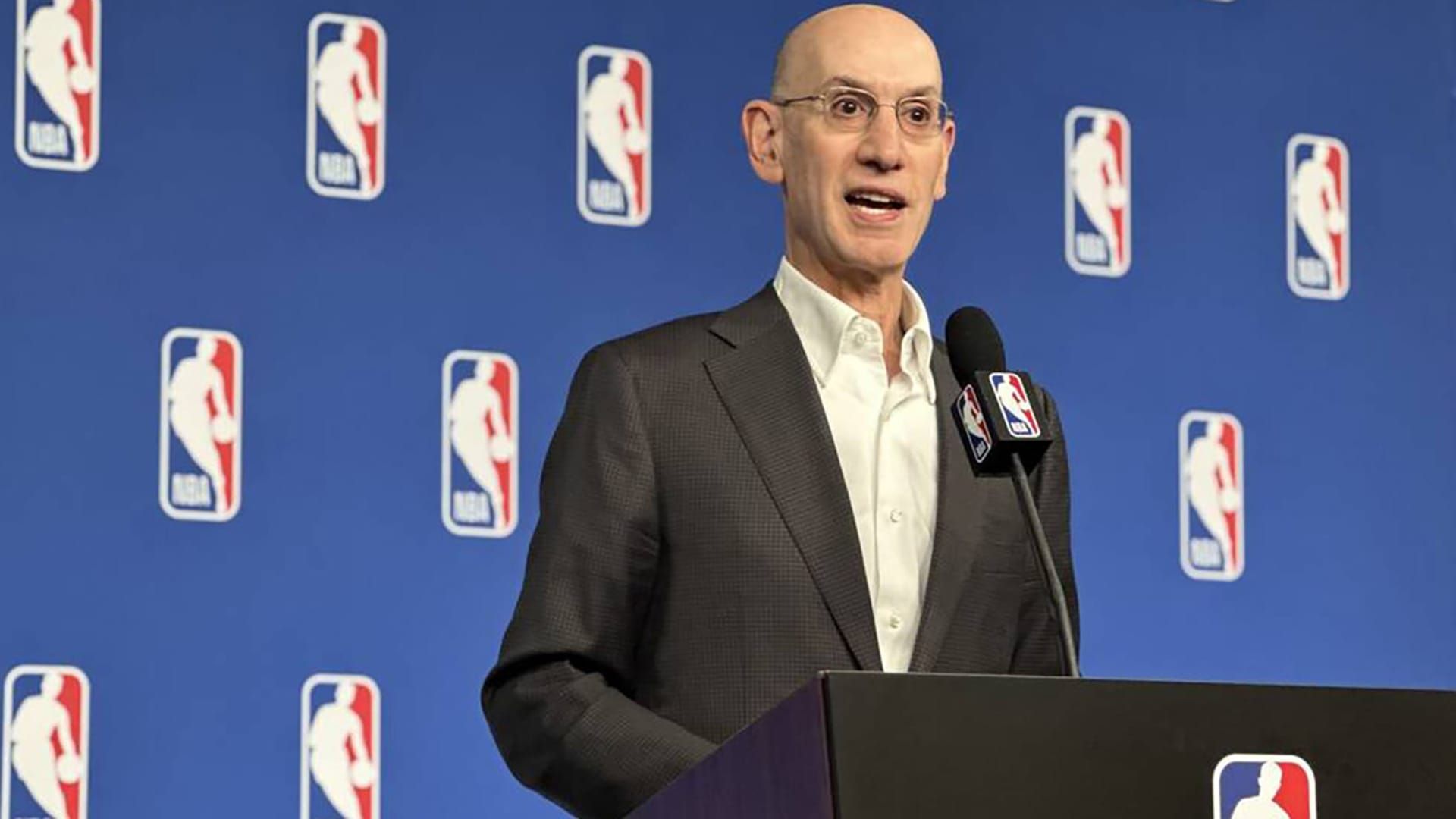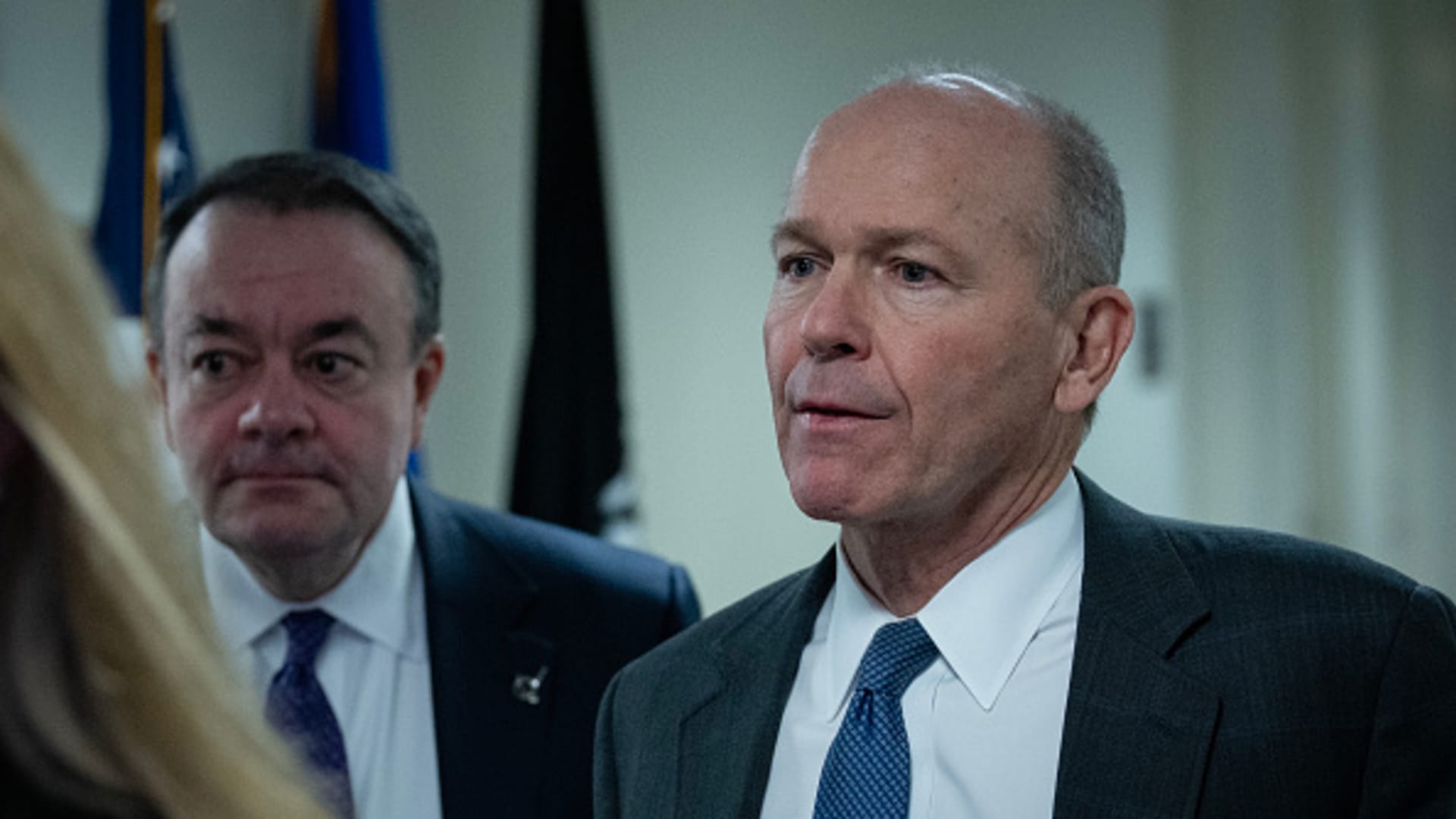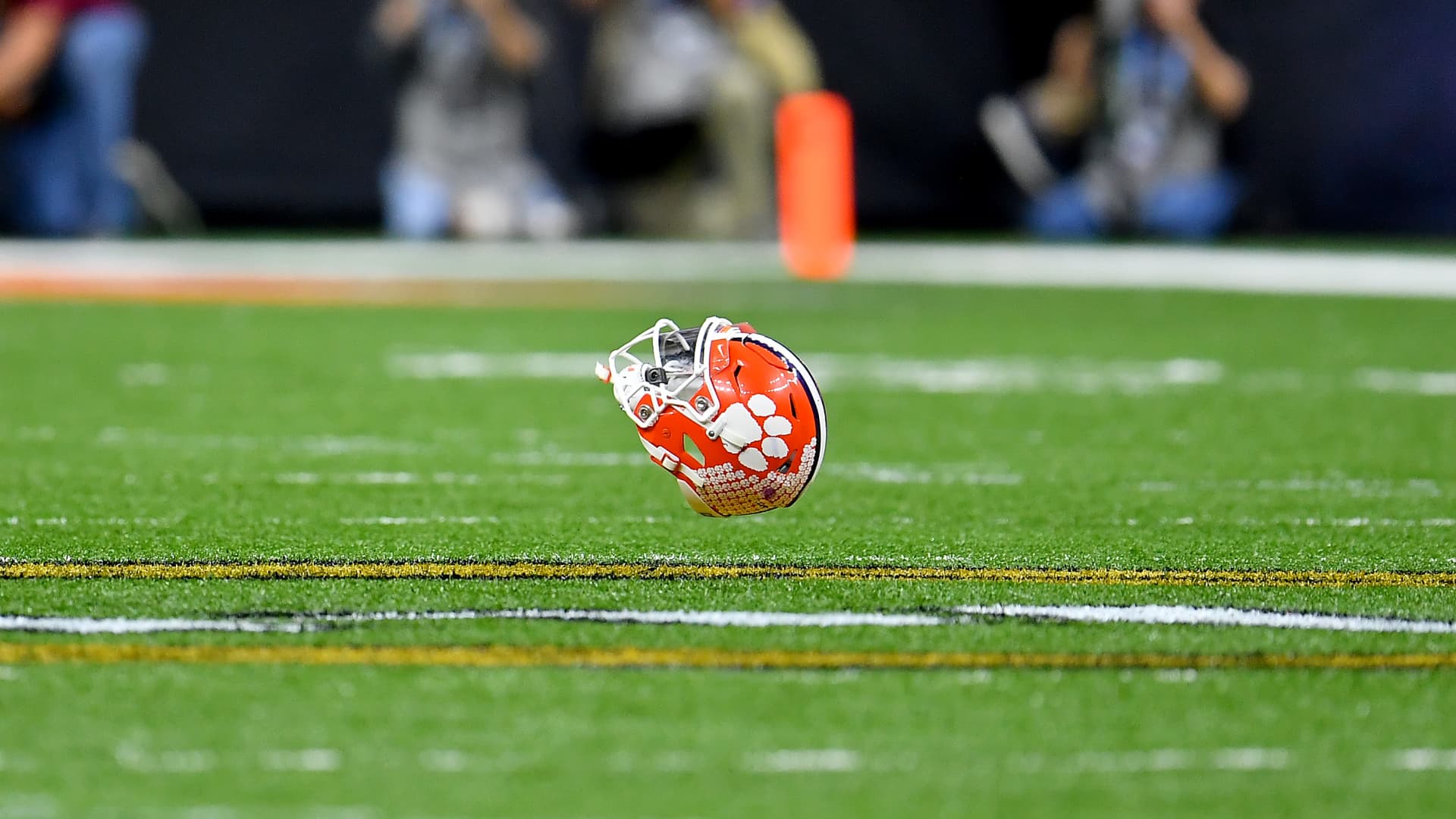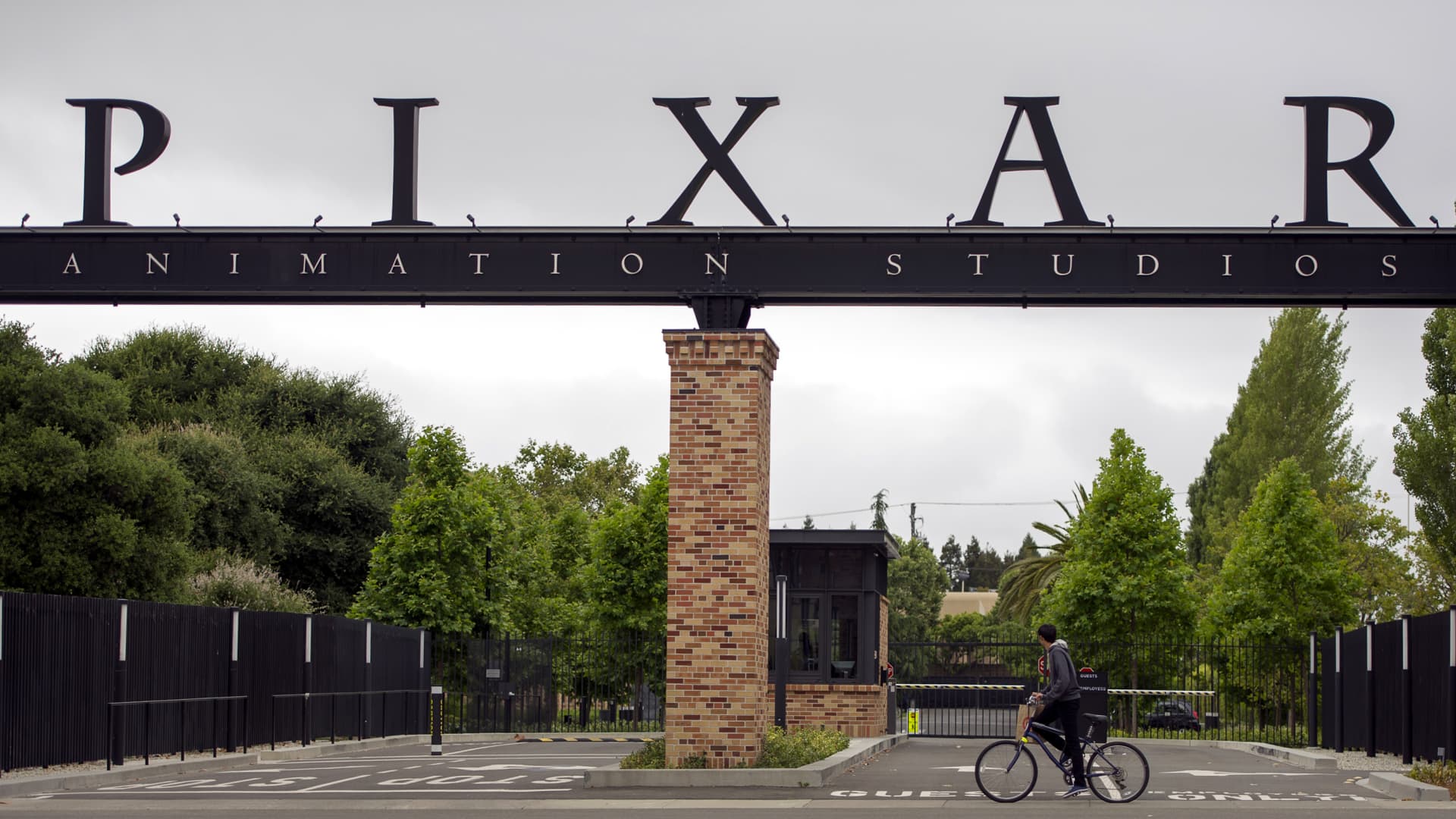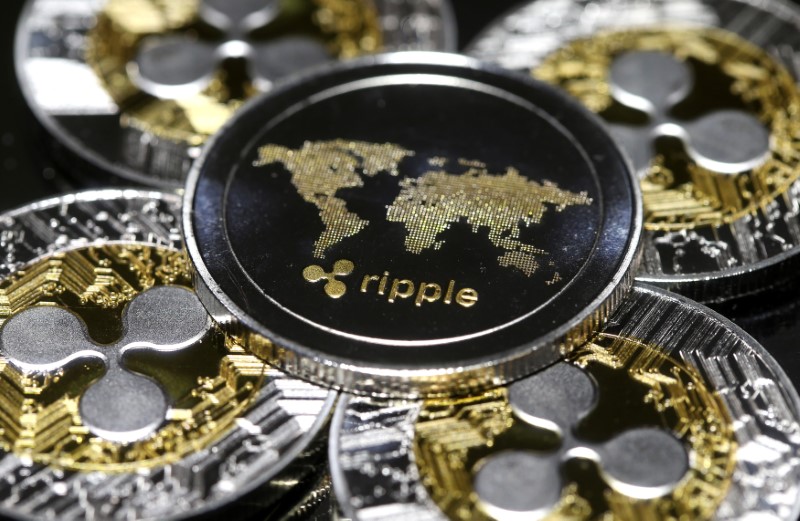NBA Commissioner Adam Silver addresses the media at the Thomas & Mack Center on July 16, 2024, in Las Vegas.
Mick Akers | Las Vegas Magazine | Tribune News Service | Getty Images
Warner Bros. Discovery sued the NBA on Friday as it tries to retain broadcast rights to a package of live games.
“Given the NBA's unjustified rejection of our offer to match a third party's offer, we have taken legal action to enforce our rights,” the company's TNT Sports unit said in a statement. “We strongly believe that this is not only our contractual right, but is also in the best interest of fans who want to continue to watch our industry-leading NBA content with the choice and flexibility we offer them across our widely distributed WBD video distribution platforms, including TNT and Max.”
The media company is seeking to block the NBA from awarding rights to Amazon, whose gaming package Warner Bros. Discovery has sought to match, or seek monetary damages.
The NBA said Wednesday that it had reached agreements with Disney, Comcast's NBCUniversal and Amazon into three separate gaming packages, ending its nearly 40-year relationship with Warner Bros. Discovery’s Turner Sports. The 11-year media rights deal is worth an estimated $77 billion, a massive increase from the previous agreement as the value of live sports rises.
In response to the lawsuit, NBA spokesman Mike Bass said: “Warner Bros. Discovery's claims are without merit and will be addressed by our attorneys.”
Warner Bros. Discovery said earlier this week that it has filed paperwork with the league to match one of the packages, which people familiar with the matter identified as the $1.8 billion-per-year pool of games earmarked for Amazon. The tech giant’s deal includes regular-season games, the season-long tournament and some playoff games.
The NBA granted Warner Bros. Discovery matching rights when it signed its previous media deal in 2014. The provision is intended to give an incumbent company the right of last refusal to maintain its position as a media partner.
But Warner Bros. Discovery’s decision to match Amazon’s package, rather than the $2.5 billion-a-year deal with NBCUniversal, prompted the league to say Wednesday that the matching rights are invalid. Warner Bros. Discovery’s bid for that package involves airing NBA games on its TNT cable network and simulcasting them on its streaming service, Max. That’s not an equivalent comparison to Amazon Prime Video, which is a streaming-only service, the league argued.
Warner Bros. Discovery argued in a court filing Friday that its matching rights should still apply to the Amazon package because many of the games in that package previously aired on cable television.
“The MRE (Matching Rights Exhibit) further states that: “[i]“In the event that TBS matches a third-party offer that includes cable rights” and no other holder matches, “then TBS will have the exclusive right and obligation to exercise the cable rights provided for (and on the same terms as set forth in) the third-party offer,” Warner Bros. Discovery wrote in its court filing. “That is exactly what happened here: Amazon made an offer for the cable rights as defined in the MRE, and TBS matched it. But, in violation of the Agreement, the NBA has refused to comply with TBS’s match.” TBS is a cable television network owned by Warner Bros. Discovery.
In a letter the NBA sent to Warner Bros. Discovery on Wednesday, the league pointed to contractual language regarding the 2014 matching rights as its reason for rejecting the offer.
The NBA cited the clause: “In the event that a matched holder matches a third party offer that provides for the exercise of Game Rights through any specified form of combined audio and video distribution, such matched holder shall have the right and obligation to exercise such Game Rights only through the specified form of combined audio and video distribution (e.g., if the specified form of combined audio and video distribution is Internet distribution, a matching holder may not exercise such Game Rights through television distribution).”
CNBC's David Faber reported Thursday that Warner Bros. Discovery has taken steps to sue the NBA.
The NBA's value to Turner
In 2022, Warner Bros. Discovery CEO David Zaslav said his company “didn't have to own the NBA” if the economic situation wasn't strong.
“In sports, we are tenants,” Zaslav said at an investor conference in November 2022. “That’s not a good deal.”
Still, Friday’s lawsuit exposed the NBA’s value to Turner Sports. Owning NBA rights is valuable to the health of Warner Bros. Discovery’s cable TV business, which has suffered in recent years as millions of Americans canceled traditional pay TV in favor of a bundle of streaming services.
“NBA games generate significant viewership and audience numbers as consumers are more likely to watch the games live, in real time. This, in turn, impacts the price TBS and WBD are able to charge their advertisers and distributors who license TNT to broadcast to their customers,” the company wrote in the complaint. “NBA distribution rights give TBS and WBD the ability to grow their brands and reach a larger group of consumers that only NBA games attract. NBA broadcast rights also give TBS and WBD a competitive advantage over other programmers, particularly when negotiating with other leagues for sports rights.”
Warner Bros. Discovery argued that the NBA brings “intangible and incalculable benefits” to the company's business and requested “preliminary and permanent injunctive relief to enjoin the NBA from licensing these unique and irreplaceable rights.” [to Amazon]and added that if “equitable relief is not granted,” he expects “monetary damages” from the NBA.
Disclosure: NBCUniversal is the parent company of CNBC.
VIDEO: Warner Bros. Discovery sues NBA over streaming rights

